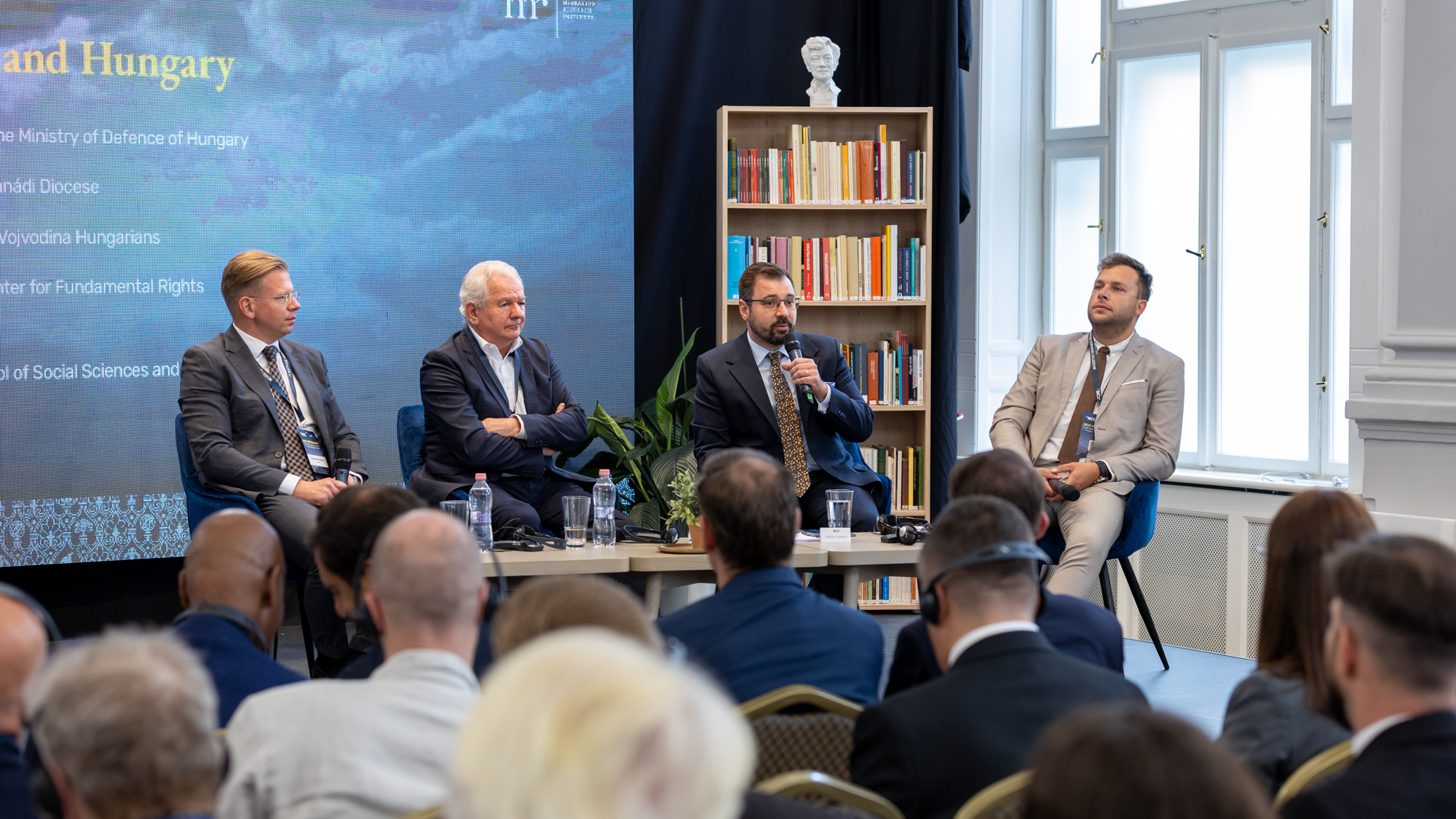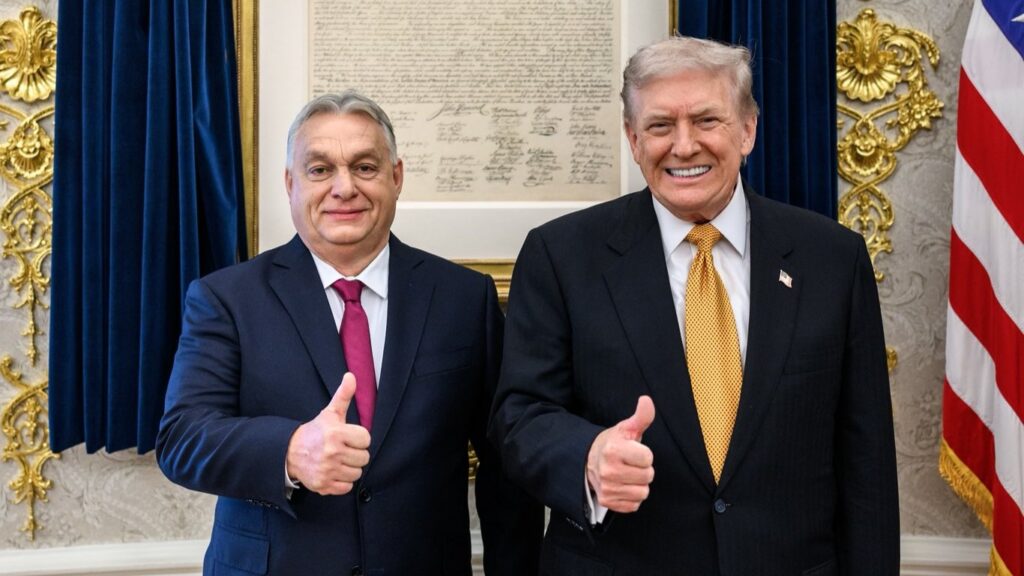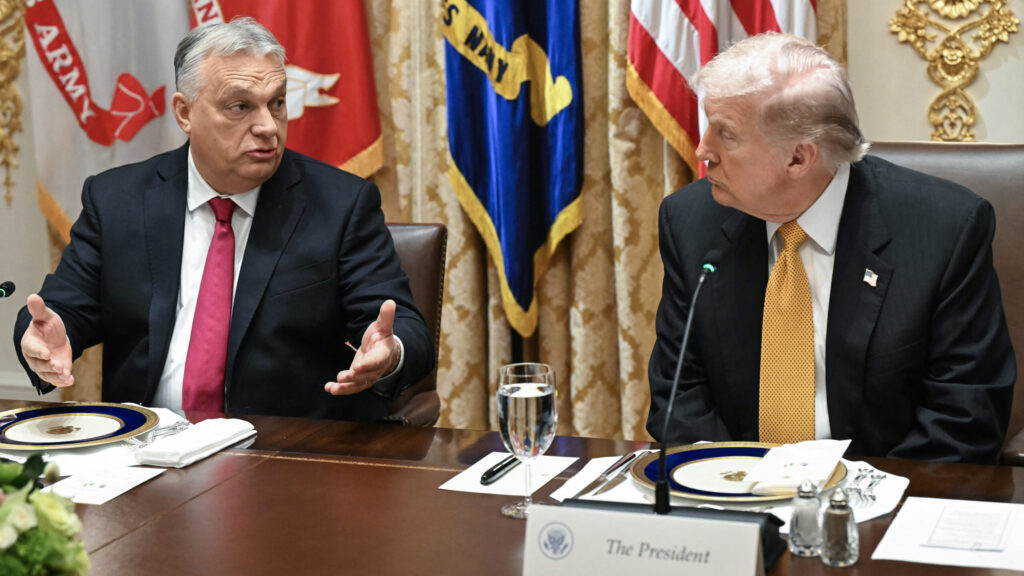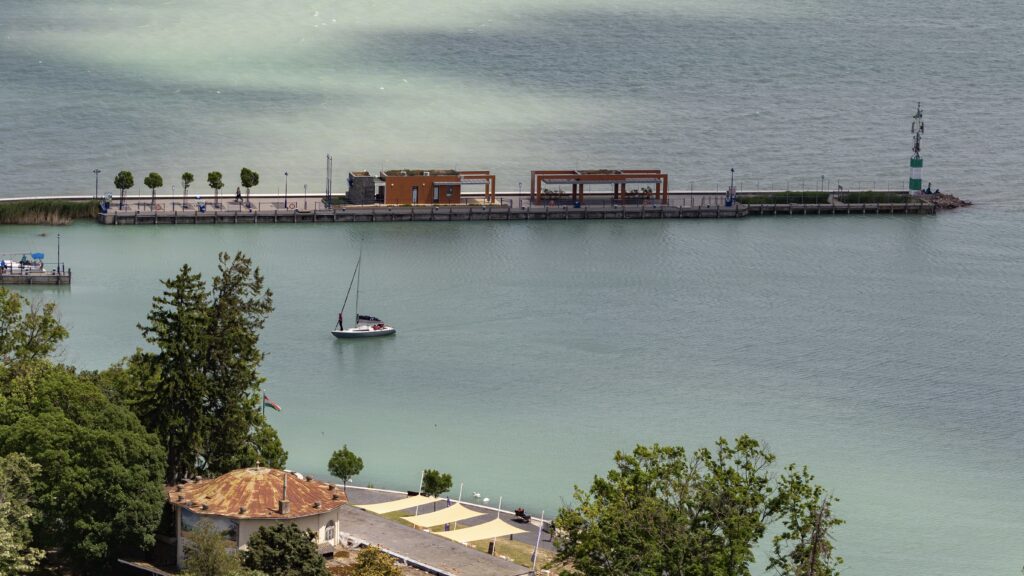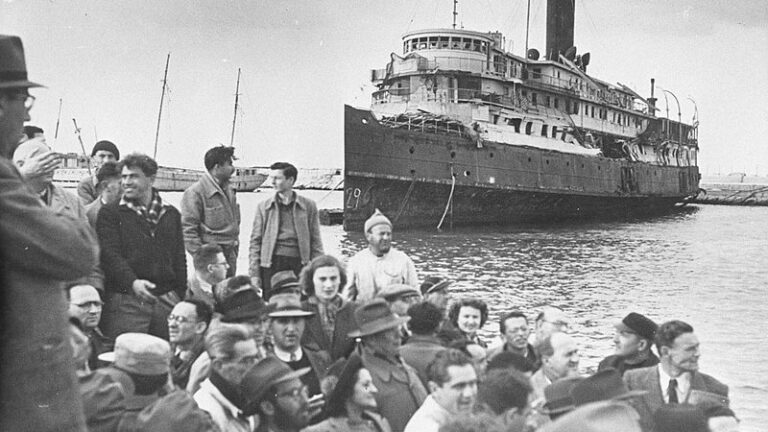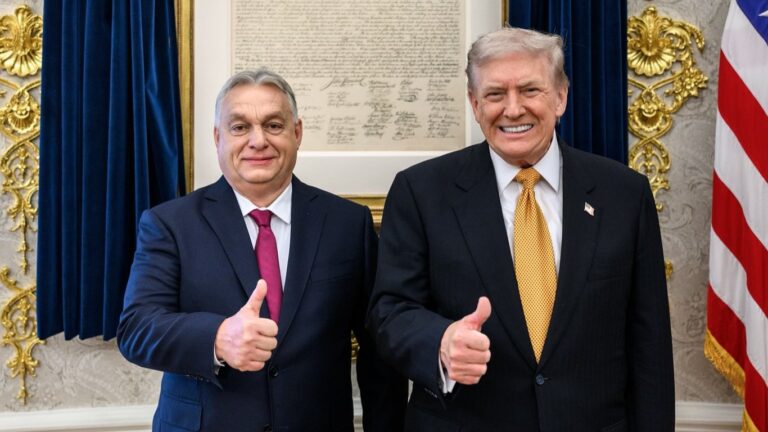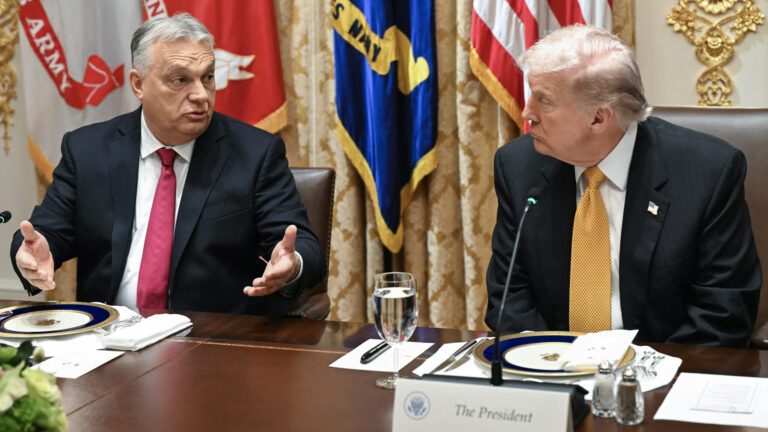Mathias Corvinus Collegium (MCC) and the Migration Research Institute (MRI) jointly organized a two-day summit in Szeged on 24–25 September to mark the tenth anniversary of MRI’s foundation and to reflect on the 2015 migration crisis that shook Europe. The conference brought together policymakers, academics, church leaders, and regional representatives to assess Hungary’s unique response to the crisis, the ongoing challenges of mass migration, and its broader implications for Western civilization.
The event opened with remarks by Director General of MRI Tamás Dezső, who recalled the scale of the influx Hungary faced in September 2015, when Prime Minister Viktor Orbán’s government decided to close the southern border. Citing data from that period, Dezső noted that 64,000 migrants arrived from Syria and 45,000 from Iraq, alongside smaller groups from distant regions such as the Solomon Islands and Cuba—underlining that part of the arrivals were not fleeing war, despite how the situation was framed in the mainstream media. The majority, he emphasized, were men aged 14–35.
Hungary, Dezső argued, was in a unique position to analyse the crisis strategically. Unlike many Western countries, Hungary had no colonial history and thus little prior experience dealing with large numbers of arrivals from Africa or the Middle East. ‘We were not weighed down by colonial guilt,’ he explained. ‘We could focus on statistics and the real roots of the phenomenon.’ In his view, the 2015 crisis was less a one-off emergency than a symptom of deeper global problems, such as overpopulation and water scarcity.
Rector of MCC Péter Lánczi added that the crisis had exposed Europe’s fragmented knowledge of migration and underscored the need for a coherent, long-term strategy at the continental level.
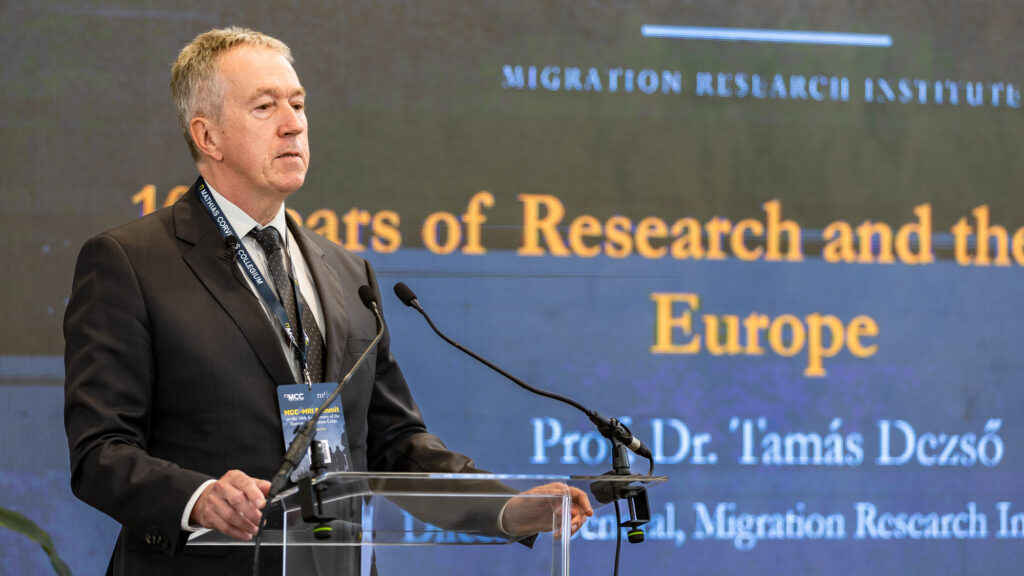
The keynote address was delivered by President of the Alliance of Vojvodina Hungarians (VMSZ) Bálint Pásztor. He recalled how Serbia, a country of only six million people, saw around 815,000 illegal migrants pass through its territory in 2015, most attempting to cross into the EU at the Hungarian border. Pásztor described the human dimension of the crisis in Vojvodina, where entire towns were overwhelmed.
‘In Kanjiža (Magyarkanizsa), a town of just 2,500 people, we saw 1,000 to 1,500 migrants arriving every day,’ he said. ‘In some villages, four times as many migrants turned up daily as there were local residents.’ He recalled that homes—both inhabited and abandoned—were broken into, and the population lived in fear. While no local lives were lost, the atmosphere was tense, culminating in the violent clashes at Röszke on 16 September 2015, when migrants attempted to break through the border fence.
Pásztor stressed that while his party was then part of the Serbian governing coalition, it was the only political force to speak up for the safety of the local population. ‘For that, I was branded xenophobic and even fascist by liberal NGOs and opposition parties,’ he recalled. He argued that Hungary’s decision to erect the border fence had ultimately spared Vojvodina from greater chaos by diverting the migration route towards Croatia and Bosnia. However, he noted that violent crime, including robberies, gang wars, and even grenade attacks, later became common in Subotica (Szabadka) and its surroundings, until security forces intervened.
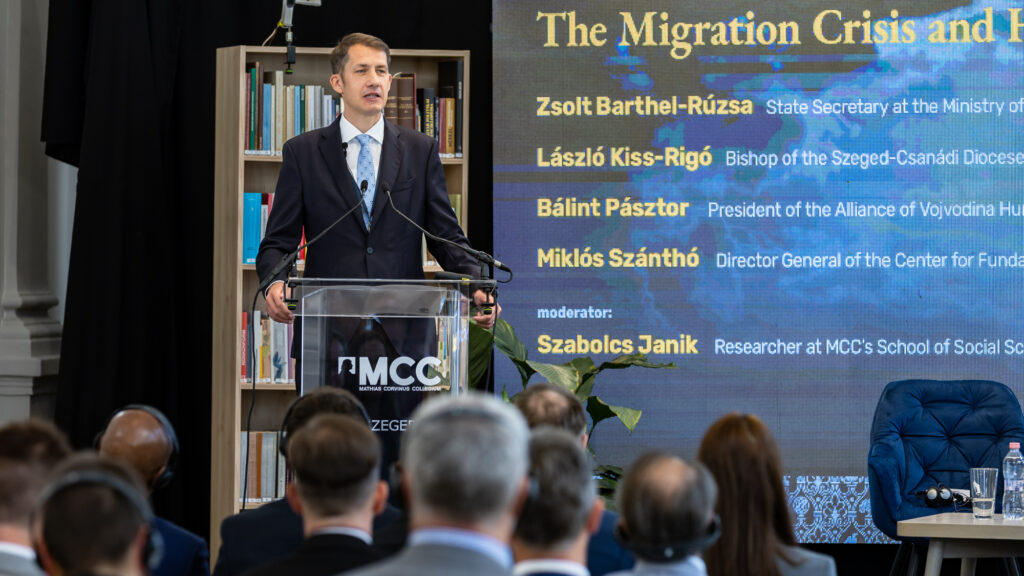
Following the keynote, a panel discussion explored the broader lessons of the crisis. Moderated by Szabolcs Janik of MCC, the debate featured State Secretary at the Ministry of Defence Zsolt Barthel-Rúzsa, Bishop László Kiss-Rigó of the Szeged-Csanád Diocese, and Director of the Center for Fundamental Rights Miklós Szánthó.
Bishop Kiss-Rigó started by sharing his experiences from 2015. While the diocesan Caritas organization rushed to provide assistance, it soon became clear to him that the situation was not primarily a humanitarian emergency but a security threat. His comments at the time, including those in international media, were often portrayed as contradicting the late Pope Francis. ‘But what we saw was not poverty-driven migration,’ the bishop explained. ‘It was a coordinated process, different from the South American reality the Holy Father knew. True Christian love means helping, but above all, where the problems originate.’
Barthel-Rúzsa focused on the Hungarian Defence Forces’ role in constructing the border barrier, deploying nearly 5,000 soldiers to build 175–180 kilometres of fence. The mission, he said, was a turning point: ‘Until then, we took part mainly in peacekeeping abroad. For the first time since World War II, our soldiers were tasked with defending the homeland on this scale.’ The armed forces, he argued, gained invaluable logistical and operational experience, later applied in missions in Lebanon, the Balkans, and even preparations for a planned deployment in Chad.
Szánthó shifted the discussion to contemporary politics, unveiling a recent European Parliament draft report co-sponsored by the Greens and the European People’s Party (EPP), in which Hungary’s opposition Tisza Party sits. The text calls for dismantling Hungary’s border fence and freezing EU funds until Budapest fully complies with Brussels’s migration policies. ‘This makes clear that migration policy is now the central rule-of-law issue used against Hungary,’ he said. He warned that what Hungary had built over the past decade—legal and physical defences—was under threat from domestic actors aligned with EU federalists.
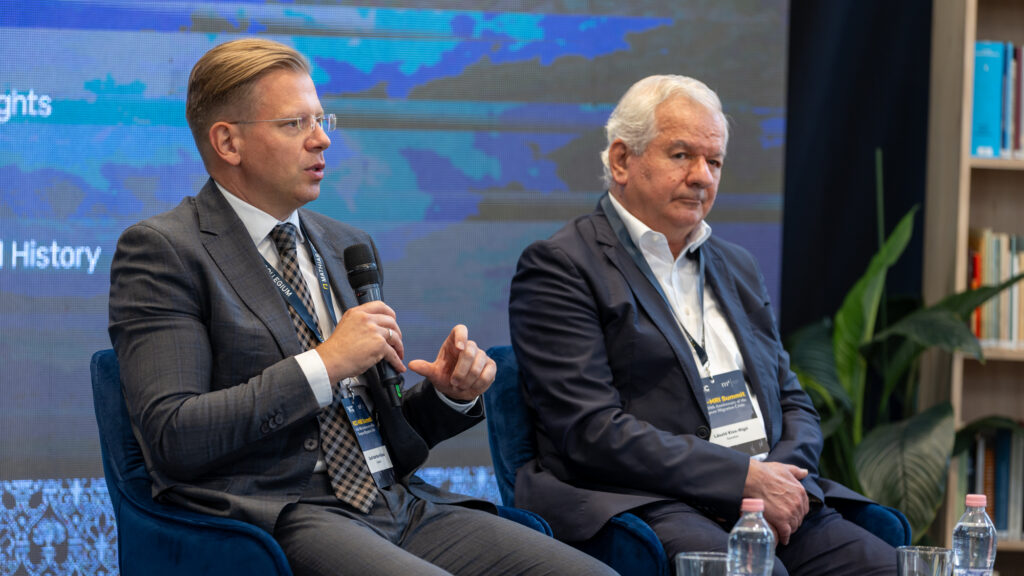
The debate also touched on Western Europe’s experience since 2015. Szánthó pointed to the rise of no-go zones, parallel societies, growing antisemitism, declining public security, and terrorism as evidence that Hungary’s restrictive approach was justified. ‘Reality has vindicated us,’ he declared. ‘Western societies face irreversible changes. The lesson is simple: it takes only one bad decision to set a country on that path.’
Bishop Kiss-Rigó returned to the moral dimension, emphasizing that Christian charity must not mean self-destruction. ‘The commandment to love one’s neighbour presupposes that one respects and preserves one’s own identity and culture,’ he said.
Throughout the discussion, panellists agreed that the long-term solution lies in addressing root causes in migrants’ home regions rather than allowing mass inflows into Europe. Hungary, they noted, has contributed through the Hungary Helps programme, aid to Lebanon and the Balkans, and plans for stabilization missions in Africa.
As the conference marked both the tenth anniversary of the Migration Research Institute and of the crisis itself, participants concluded that Hungary’s approach—closing borders, refusing quotas, and focusing on helping people in their regions of origin—remains the only viable model for protecting national sovereignty and preserving European civilization.
Related articles:

